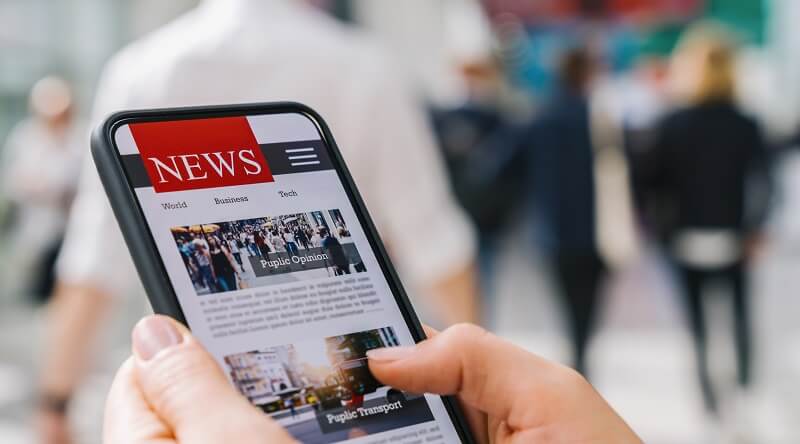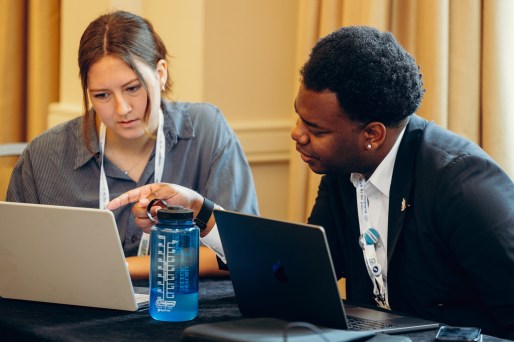The Importance of Fact-Checking worldwide of News Online
The occurrence of false information in today's on the internet news landscape has actually reached startling degrees. Fact-checking organizations play a vital role in combating this fad. They validate insurance claims and boost the integrity of journalism. However, the effectiveness of these companies frequently rests on their methods and public assumption. As audiences navigate this complex setting, the ramifications of their findings might form the future of news usage and count on. What does this mean for the integrity of details moving on?

The Rise of Misinformation in the Digital Age
How has the advent of electronic technology added to the spread of false information? The fast development of the web and social media systems has actually promoted the dissemination of details at an unmatched speed. Individuals can share posts, videos, and viewpoints with a mere click, commonly without verifying the web content's precision. Formulas focus on marvelous or mentally billed material, resulting in an expansion of deceptive narratives that capture interest.
In addition, the anonymity managed by digital systems allows people to spread false details without responsibility (stnews.live). Misinformation grows in echo chambers, where customers are subjected mostly to point of views that strengthen their beliefs, additionally setting falsehoods. The saturation of information can bewilder customers, making it challenging to recognize qualified sources from unreliable ones. As a result, misinformation has actually become a pervasive problem in the digital landscape, influencing public opinion and count on in legit news resources
The Function of Fact-Checking Organizations
Fact-checking companies play an important function in enhancing the integrity of journalism by confirming insurance claims made in report. Their efforts are important in combating misinformation, ensuring that accurate details prevails in the electronic landscape. By holding media electrical outlets responsible, these organizations contribute substantially to informed public discussion.
Enhancing Reliability in Journalism
While false information multiplies in the digital age, fact-checking organizations play a vital function in improving the integrity of journalism. These companies carefully validate cases made in news write-ups, public statements, and social media sites articles, guaranteeing that details shared to the general public is exact and trustworthy. By offering independent evaluations, they act as a crucial source for reporters, aiding them preserve high requirements of integrity. In addition, their efforts promote openness in media, cultivating public depend on. As target markets come to be significantly critical, the visibility of trustworthy fact-checking entities can identify trusted news resources from those that might spread falsehoods. Inevitably, the commitment of fact-checking companies to copyright reliability is critical for the health of democratic discussion.
Combating False Information Efficiently
As misinformation remains to spread quickly throughout electronic systems, the role of fact-checking organizations becomes significantly critical in the fight for accurate details. These organizations serve as watchdogs, inspecting claims made by somebodies and media outlets to ensure accountability. By employing extensive research study techniques and expert analysis, they validate facts and clear up deceptive narratives. Their searchings for are distributed via different networks, informing the general public and promoting essential thinking. Additionally, collaborations with social media platforms improve their reach, permitting for punctual flagging of incorrect information. As digital literacy expands, the impact of fact-checking companies is important in equipping audiences to recognize reality from fraud, eventually adding to a much more educated society.
Exactly How Misinformation Affects Public Understanding
Misinformation substantially threatens count on media, leading target markets to wonder about the trustworthiness of news resources. Therefore, individuals commonly gravitate in the direction of electrical outlets that reinforce their existing beliefs, adding to the polarization of viewpoints. This dynamic produces a fragmented information landscape, where shared comprehending comes to be progressively difficult to achieve.
Rely on Media

Rely on media has come to be progressively breakable in the digital age, where the fast spread of false info can alter public perception. As false information multiplies across social media and on-line platforms, audiences commonly discover it challenging to discern reliable resources from unreliable ones. This uncertainty fosters skepticism, leading lots of individuals to examine the intentions behind news reporting. Consequently, rely on established media electrical outlets has lessened, as consumers progressively transform to alternate resources that may do not have extensive content standards. This disintegration of depend on not just affects specific ideas but also weakens the cumulative capability to participate in educated discussions. Eventually, the stability of journalism goes to risk, highlighting the important requirement for effective fact-checking to bring back self-confidence in the media landscape.

Polarization of Viewpoints
The enhancing hesitation towards conventional media has actually added to a growing polarization of opinions among the public. False information, typically distributed through social networks and on-line systems, plays a substantial function in forming distinctive ideological separates. Individuals often look for information that aligns with their pre-existing beliefs, reinforcing their perspectives while rejecting opposing perspectives. This resemble chamber effect heightens divisions, resulting in a fragmented public discussion where agreement becomes significantly elusive. Furthermore, sensationalized stories prosper in this environment, even more look at these guys skewing public perception and promoting mistrust in reliable resources. As polarization escalates, the necessity for effective fact-checking comes to be extremely important to bridge spaces and promote notified conversations, eventually guaranteeing an extra natural society with the ability of maneuvering complicated problems.
Methods for Reliable Fact-Checking
Efficient fact-checking counts on a systematic approach that consists of complete research, confirmation of sources, and crucial analysis of cases. A foundational technique is cross-referencing information from numerous reputable resources to validate its accuracy. Fact-checkers typically use specialized data sources and archives to trace the beginning of particular statements, guaranteeing that the reported information aligns with recorded evidence.
One more necessary method includes inspecting the context in which claims exist. Deceptive details can arise from out-of-context quotations or selective data use. By taking a look at the more comprehensive narrative, fact-checkers can determine potential predispositions or false impressions.
Moreover, involving with experts in appropriate areas can supply quality and understanding that enhances the fact-checking process. This partnership can discover nuances that laypeople may forget - stnews.live. Ultimately, a self-displined approach integrating these methods fosters a more enlightened public, boosting the integrity of info distributed in the electronic age
The Effect of Social Media Site on News Intake
How has social media transformed the way people take in news? The introduction of systems like Facebook, Twitter, and Instagram has significantly modified news usage patterns. News is now shared swiftly, permitting customers to accessibility real-time updates and engage with web content with sort, shares, and remarks. This immediacy has fostered a choice for bite-sized info, commonly at the cost of thorough analysis.
Social media enables personalized news feeds, where formulas curate web content based on individual choices, creating resemble chambers that may restrict exposure to varied perspectives. The duty of conventional news electrical outlets has decreased as individuals increasingly count on peer recommendations and trending topics. The trustworthiness view it of details is usually compromised, as sensationalism can outweigh accurate coverage. Generally, social media has improved news intake, highlighting speed and customization while testing the requirements of journalistic stability.
Empowering Target Markets to Recognize Trustworthy Sources

Additionally, examining the authorship and business background of newspaper article can disclose prospective prejudices. Cross-referencing details throughout multiple trustworthy outlets additionally enhances the confirmation process. Using digital tools, such as web browser expansions that rate the trustworthiness of web sites, can also help in identifying reliable info. By actively involving with these sources and cultivating a critical mindset, audiences can much better furnish themselves to discern reliable news resources, ultimately promoting a more informed culture amidst the complexities of today's media atmosphere.
The Future of Journalism and Fact-Checking
As the media landscape progresses, the future of journalism and fact-checking encounters both challenges and opportunities. The increase of electronic systems has equalized information dissemination, enabling varied voices to arise. Nonetheless, this has also resulted in the expansion of false information, requiring robust fact-checking systems. Reporters will progressively rely on modern technology, consisting of AI tools, to verify truths rapidly and effectively.
Partnership between news companies and fact-checking entities is expected to reinforce reputation and openness. Moreover, target market engagement will certainly play a necessary function, as informed visitors end up being substantial partners in determining credible material.
The demand for liability and precision is likely to grow, pressing journalists to copyright high requirements in their coverage. Eventually, the future of journalism might pivot on its capacity to adapt to technical developments while preserving journalistic honesty, making certain that fact-checking continues to be a cornerstone of legitimate news.
Frequently Asked Concerns
How Can I Report False Information I Come Across Online?
To report false information come across online, people can make use of platform-specific reporting tools, offer clear proof, and share the info with fact-checking organizations. go to these guys Involving with neighborhood discussions can also aid increase awareness about the misinformation.
What Prevail Indications of Misinformation in News Articles?
Common indicators of false information in newspaper article consist of spectacular headings, lack of qualified sources, emotional language, irregular realities, and absence of writer credentials. Visitors ought to seriously review content for these indications to discern precision.
Exactly How Do Fact-Checkers Validate Sources?
Fact-checkers confirm resources by cross-referencing information with reliable data sources, seeking advice from experts, and checking out the original context of cases. They additionally evaluate the integrity of the resources, guaranteeing precise and credible details for public intake.
What Lawsuits Can Be Taken Versus Misinformation?
Lawsuits against false information might include libel suits, cease-and-desist orders, and governing penalties. Targets can prosecute via civil courts, while some territories enforce penalties or assents on systems disseminating incorrect info.
Exist Apps for Fact-Checking News On-The-Go?
Countless applications exist for fact-checking news on-the-go, consisting of Snopes, FactCheck.org, and PolitiFact. These applications aid customers confirm cases promptly, advertising informed decision-making and cultivating an extra critical approach to consuming news in real-time.